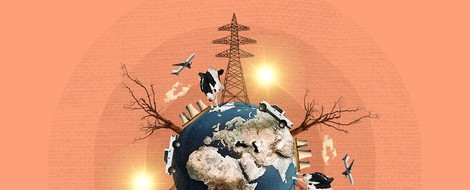Your podcast discovery platform
Curious minds select the most fascinating podcasts from around the world. Discover hand-piqd audio recommendations on your favorite topics.

piqer for: Climate and Environment Global finds Globalization and politics
I'm a freelance journalist, currently based in Madrid. I used to be a News Producer at CNBC in London before, but I thought a little bit more sun might do me good. Now I write for several news organizations, covering a range of topics, from Spanish politics and human rights for Deutsche Welle to climate change for La Marea.
Bison: Helping Us Keep Climate Change At Bay
Last week I had the chance to talk to Corinne Le Quéré, a very respected scientist who specializes in the carbon cycle. She wrote a paper a decade ago about the Southern Ocean, and how it is losing efficiency as a carbon sink. I asked her to explain what exactly a carbon sink is, and she said it's a system that absorbs more carbon than it emits. Carbon sinks are our lifeline to a safe climate future.
I started reading about climate sinks and found this wonderful article, which brings together a few of my favorite climate change adaptation topics: farming, land management, entrepreneurship, and conservation. And huge, majestic creatures too. It reminded me of that fantastic Russian father and his son, who are trying to bring back the mammoth to fight back permafrost thawing in Siberia—only while being more realistic.
The story revolves around a ranch in South Dakota, which has shifted from herding a mix of domestic cattle and bison to only the latter. This has resulted in an improvement of the soil, which benefits from the nomadic lifestyle of the animals. They move from pasture to pasture allowing time for the grass to recover, and fertilizing it. A healthier soil allows for grass with longer roots, the cornerstone of a healthy carbon sink.
“These grazing, trampling and recovery patterns were key in building soil, maintaining biological diversity and deepening plant roots, which are a key element in permanent carbon sequestration,” Ibarra-Howell said. “Over time, the wild herds and their pack-hunting predators were decimated and replaced by small numbers of domestic, sedentary livestock.”
This article is part of a wonderful series by The Weather Channel on different aspects of climate change from the 50 states of the Union. It'll take me time to read them all, but don't be surprised if you see more of them appear here on my piqd profile. If they're as good as this one, be sure they will.
Stay up to date – with a newsletter from your channel on Climate and Environment.

here's something for you (which you probably know already) > https://easac.eu/news/...